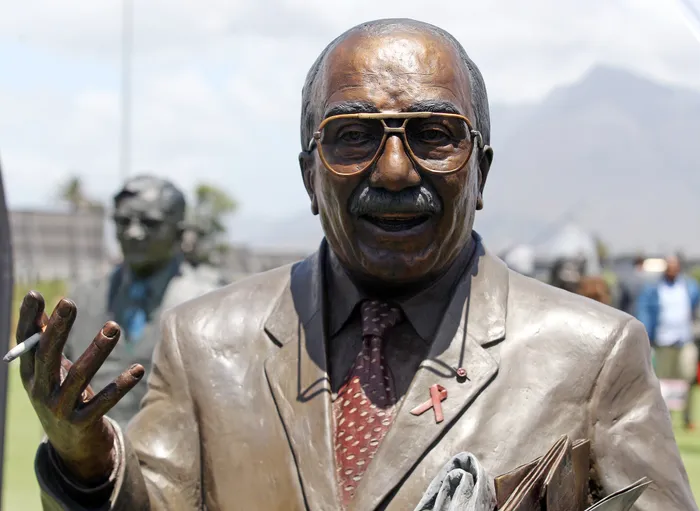Kader Asmal statue joins Long March exhibition

A statue of the late Professor Kader Asmal was unveiled at the Long March to Freedom exhibition in Century City. PICTURE: BHEKI RADEBE
A life-size bronze statue of the late Professor Kader Asmal, a struggle veteran and former post-Apartheid cabinet minister, has joined The Long March to Freedom exhibition at Century City.
The rendering of Professor Asmal was unveiled on Thursday December 5 as part of the more than 100 statues of those who fought for the country’s freedom.
"Kader was somebody who had a larger-than-life presence in the movements in the struggle... He was admired by all, a very affectionate man with tremendous values, tremendous humour and vision,” said Dali Tambo, the CEO of the National Heritage Project Non-Profit Company, the developer, owner and operator of The Long March to Freedom.
Professor Asmal first served as Minister of Water Affairs and Forestry and then later as Education Minister. He died in 2011 at the age of 76.
His widow, Louise Asmal, died last month.
Professor Asmal's friend and former colleague, Trevor Manuel, the country's former finance minister, said he had been privileged to be present for certain "great moments" in Professor Asmal's life.
"It's what happened between those moments, that's worth reflecting on today," he said. "One of those big moments was when Kader returned in 1990, he had the misfortune of sitting in a car with me. He took a decision on that day that he would not drive in a car that was being driven by me because he wouldn't live to ripe old age, but that started a wonderful relationship between us."
Their election together into the ANC's national executive committee in 1991 had also been a big moment in their lives, Mr Manuel recalled.
“There were very few of us who were elected from the Western Cape to the NEC including the late Dullah Omar. We worked together through that early period before the arrival of democracy, which was about building an organisation, and it was also about committing to the early phases of government through various talks like the Groote Schuur and Victoria minutes, and then the foundations of the interim constitution had followed. And all of that was so dependent on the insights of individuals like Kader," he said, adding that Professor Asmal had helped to lay the foundations for the Bill of Rights.


